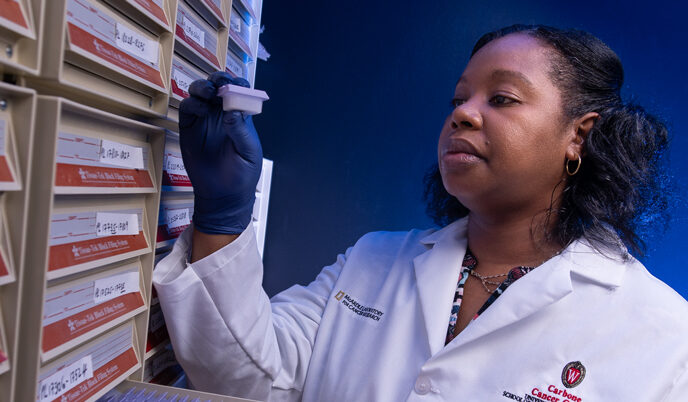
Federal SPORE Grants Bolster Cancer Research
The University of Wisconsin Carbone Cancer Center seldom takes a back seat to other institutions when it comes to producing transformative research breakthroughs. Designated in 1973 by the National Cancer Institute (NCI) as one of the nation’s original comprehensive cancer centers — and still the only one in Wisconsin — UW Carbone remains an unwavering reservoir of highly collaborative, cutting-edge researchers across the UW–Madison campus.
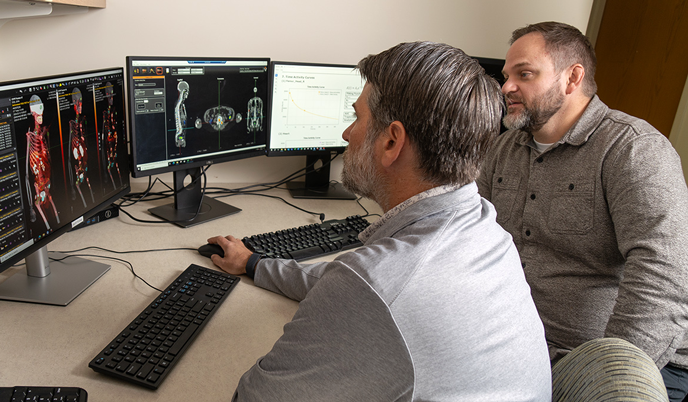
New Strengths in Theranostics, Particle Beam Therapy
The new Initiative for Theranostics and Particle Therapy — launched in May 2024 in the University of Wisconsin Carbone Cancer Center — fosters collaboration among experts across medical oncology, radiation oncology, radiology, nuclear medicine, medical physics and other specialties to accelerate precision radiation therapy and imaging for patients.
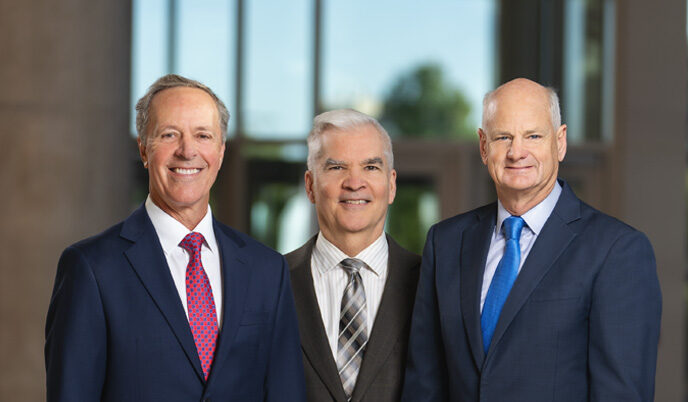
Harari, Bailey and Grist Receive Belzer Award
The Folkert O. Belzer Award is the highest honor the University of Wisconsin School of Medicine and Public Health (SMPH) bestows upon its faculty members for their lifetime achievements.
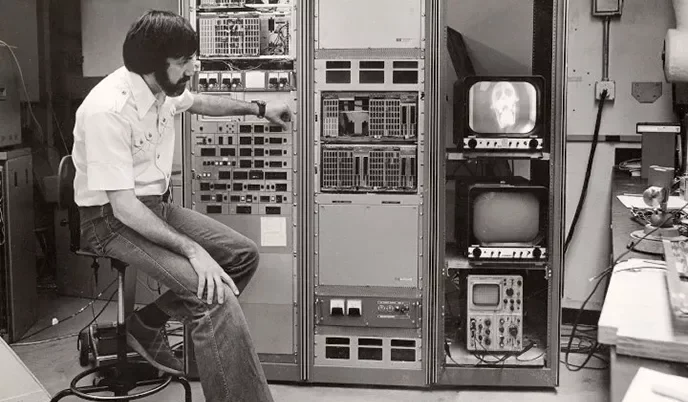
Department of Medical Physics Celebrates 40 Years of Technology Development, Clinical Care and Education
Over four decades, teams of investigators contributed to and/or invented many aspects of today’s technology, including solutions for accurate diagnosis and optimized treatment of human disease.
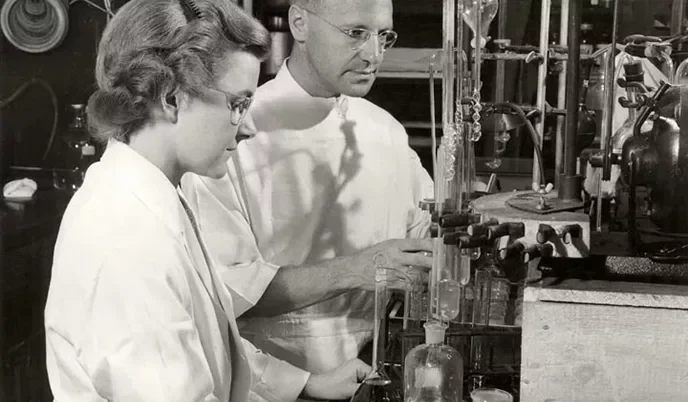
How UW–Madison’s Spirit of Innovation Helped Launch the ‘War on Cancer’
In 1972, UW–Madison, an institution already on the cutting edge of cancer research, created the UW Clinical Cancer Center.
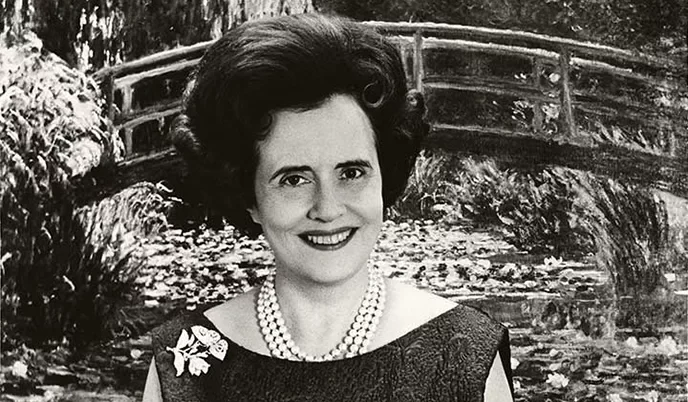
Wisconsin’s Mary Lasker a Driving Force Behind National Cancer Act
Lasker is widely credited as one of the driving forces behind the National Cancer Act.

Christian Capitini Describes Immunotherapy Successes
For nearly 10 years, Capitini has maintained an active research lab at the UW Carbone Cancer Center while also providing care for children with cancer at the American Family Children’s Hospital.

The Ride Inspires Participants and Powers Innovative Cancer Research
The Ride attracted more than 850 registrants in 2020, a remarkable accomplishment in a year when many events had to cancel completely.
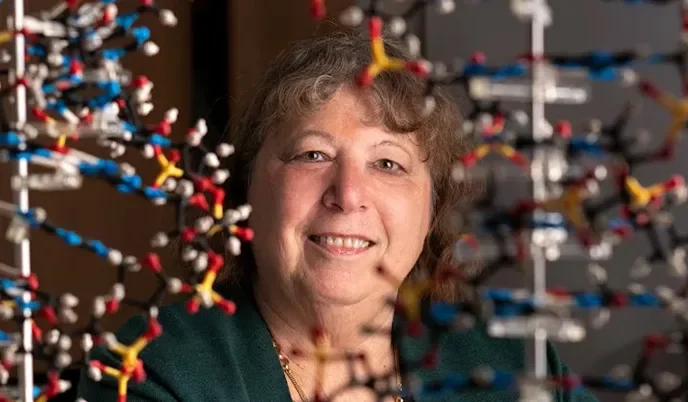
Ann Palmenberg Gives Back After Surviving Cancer
Ann Palmenberg has generously supported UW Carbone Cancer Center after surviving Stage 4 T-cell lymphoma.
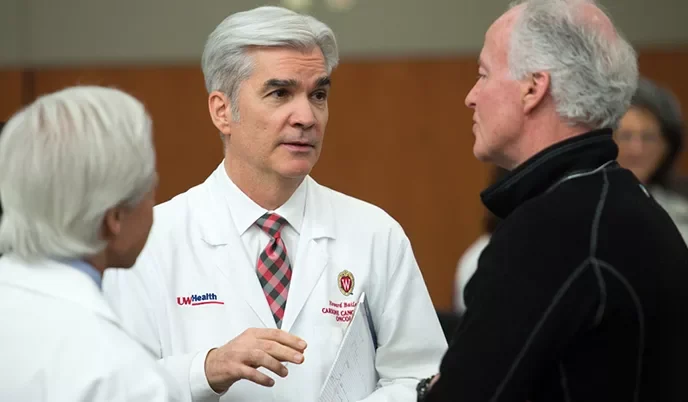
Continuing Excellence in Cancer Research
Carbone Cancer Center Director Howard Bailey builds for the future on the center's strong foundation.
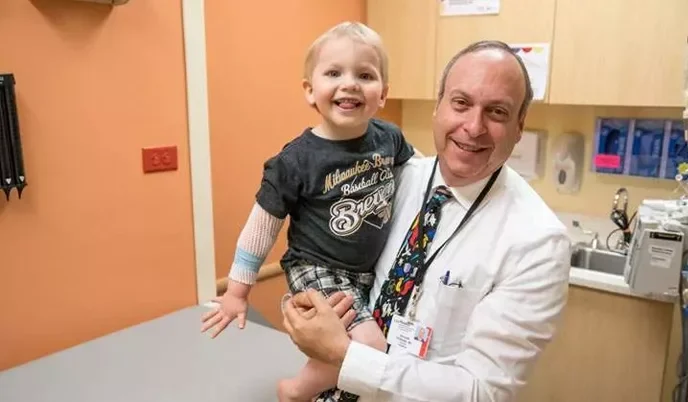
First Successful Bone Marrow Transplant Led to Today’s Immunotherapies
Fifty years ago, School of Medicine and Public Health Professor Fritz Bach (pictured) and University of Minnesota Professor Robert Good performed the first successful bone marrow transplants, made possible by Bach’s earlier research findings. One year later, Paul Sondel, then a young, inquisitive undergraduate student joined Bach’s lab and, with colleagues, has carried the torch to further the field of immunotherapy ever since.

SPORE Grant Bolsters Cancer Treatment Research
In recent years, a light often burned late in a Department of Human Oncology office at the University of Wisconsin School of Medicine and Public Health. There, you’d find Department Chair Paul Harari, MD, toiling over a project that resembled Sisyphus’s mythical task: rolling a boulder up a hill, only to have it come crashing down.